Back from a successful Olympics, Alina Mueller leads No. 3 Huskies into NCAA quarterfinal at Matthews Arena
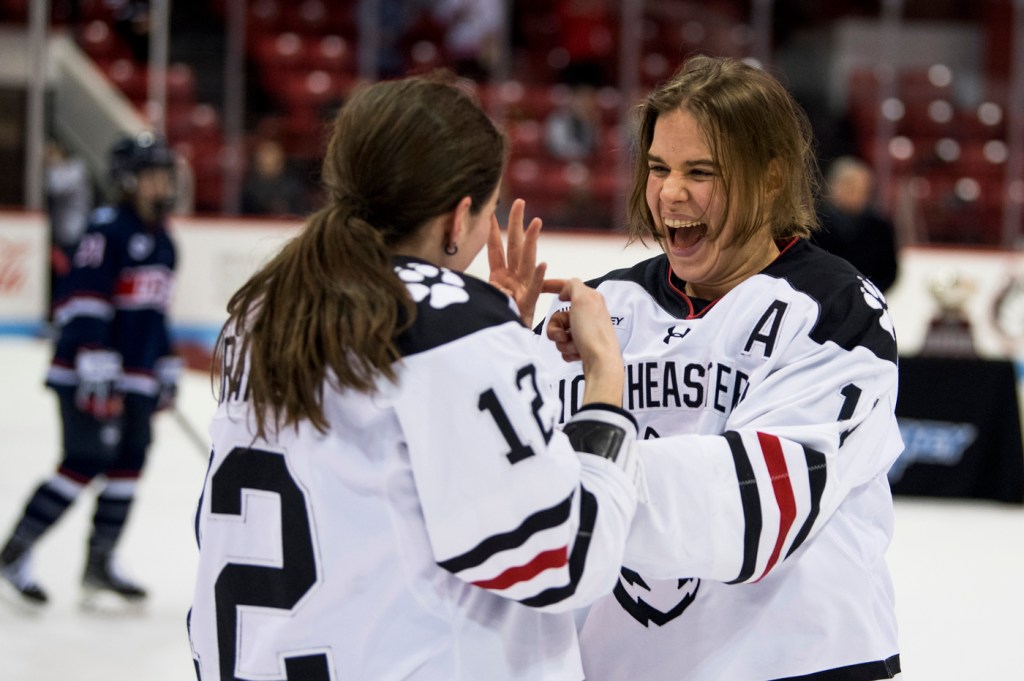
In a span of 39 seconds, two goals by senior forward Alina Mueller turned a potential Northeastern loss into a fifth straight Hockey East title last weekend. That 3-1 comeback victory over Connecticut affirmed Northeastern’s status as a national championship contender, while proving that Mueller was feeling back at home after a five-week absence at the Beijing Olympics.
The No. 3 Huskies will launch their run at the NCAA Women’s Ice Hockey Championship with a rematch of last year’s title game. On Saturday at 1 p.m. at Matthews Arena, they’ll meet defending champion Wisconsin, which beat Northeastern 2-1 in overtime of the NCAA final one year ago.
The Badgers advanced to the quarterfinal with a 3-1 win over Clarkson in the opening round Thursday at Matthews. A win over Wisconsin will return Northeastern to the NCAA Frozen Four at Penn State March 18-20.
Mueller, the nation’s most efficient scorer, is ready.
“I’m not tired at all,” says Mueller, who has produced 9 points in three games since returning from China. “My mindset is great right now. I’m in this do-or-die mode.”
Northeastern (30-4-2) may be the hungriest of the eight teams remaining in the NCAA field, based on its frustrations of the previous three years. Mueller’s freshman season ended prematurely with a broken knuckle that contributed to an NCAA opening-round loss in 2019. The 2020 tournament was canceled because of the COVID-19 pandemic, and last year the Huskies fell short in the final moment—leading to their opportunity for revenge on Saturday.
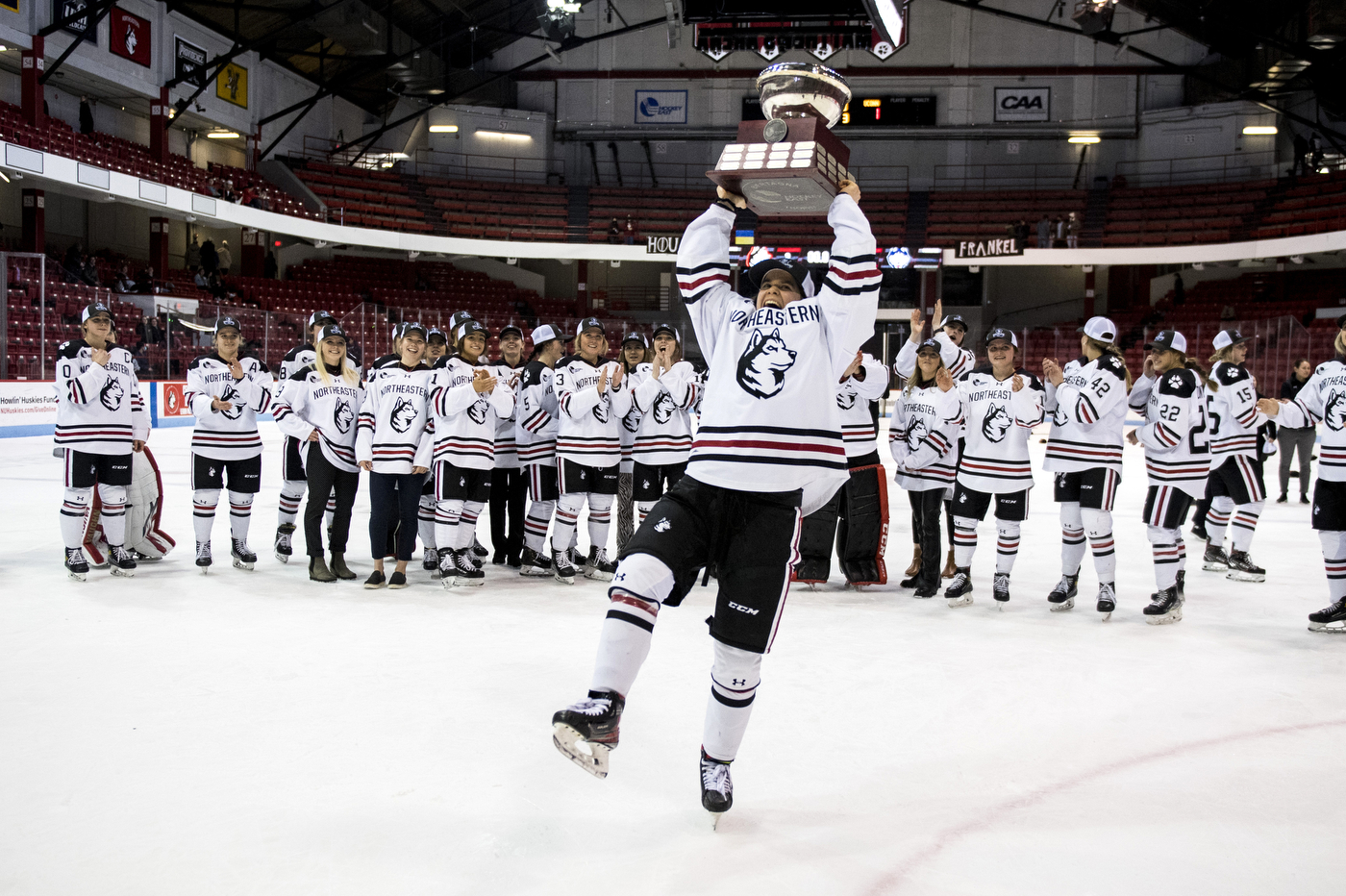
The deep and experienced Huskies are driven by an urgent sense that this is their year. Northeastern is the only school with three senior finalists for the national player of the year award in Mueller, defenseman Skylar Fontaine, and goaltender Aerin Frankel, the reigning awardee—giving them a top 10 player nationally at every position.
Northeastern leads the nation in winning percentage (.861), team shutouts (14), scoring defense (1.00 goal per game) and power-play goals (43). Frankel is likely to repeat as the nation’s top goalie. Fontaine leads all players with 1.14 assists per game. Senior forward Maureen Murphy is tied for the lead nationally with 29 goals.
Mueller, despite absences caused by an early-season ankle injury and the Olympics, is the NCAA’s runaway leader in scoring efficiency. She is averaging 2 points per game (10 goals and 28 assists overall) in 19 appearances this season.
The Huskies lost their first two games while Mueller was overseas, including a 3-1 Beanpot semifinal defeat at home to Boston College. That unusual stretch appeared to shock them back to normal—they’ve since gone 9-0-1 while outscoring opponents 43-8.
The Olympics helped deepen Mueller’s perspective on the national championship opportunity that will play out over the next week. In Beijing, she led her young Swiss team to fourth place in women’s hockey while emerging as the only player from outside Canada and the U.S. to rank among the top nine in scoring, with four goals and six assists in seven games.
“She showed that she’s one of the best players in the world,” Northeastern coach Dave Flint says of Mueller.
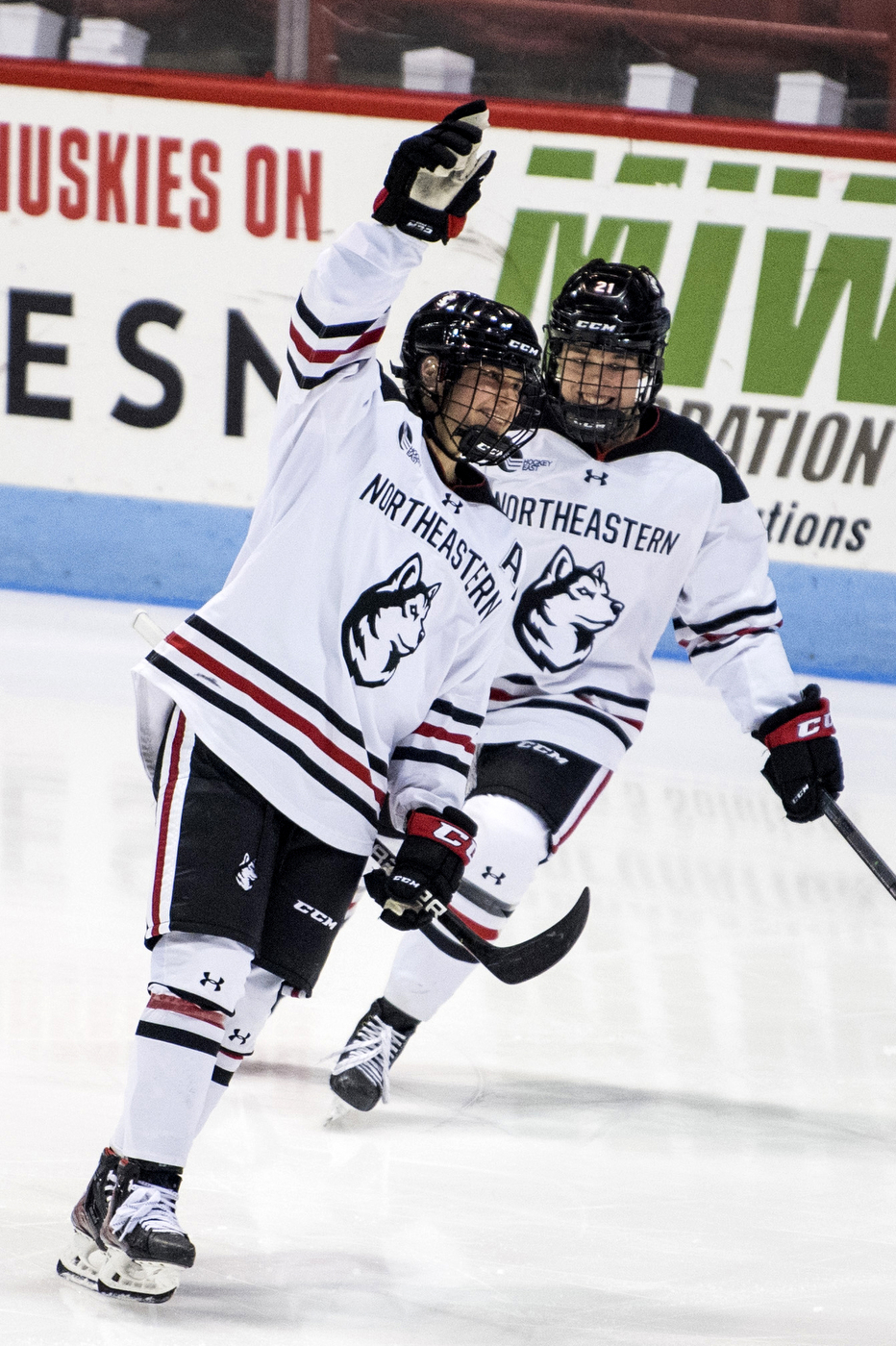
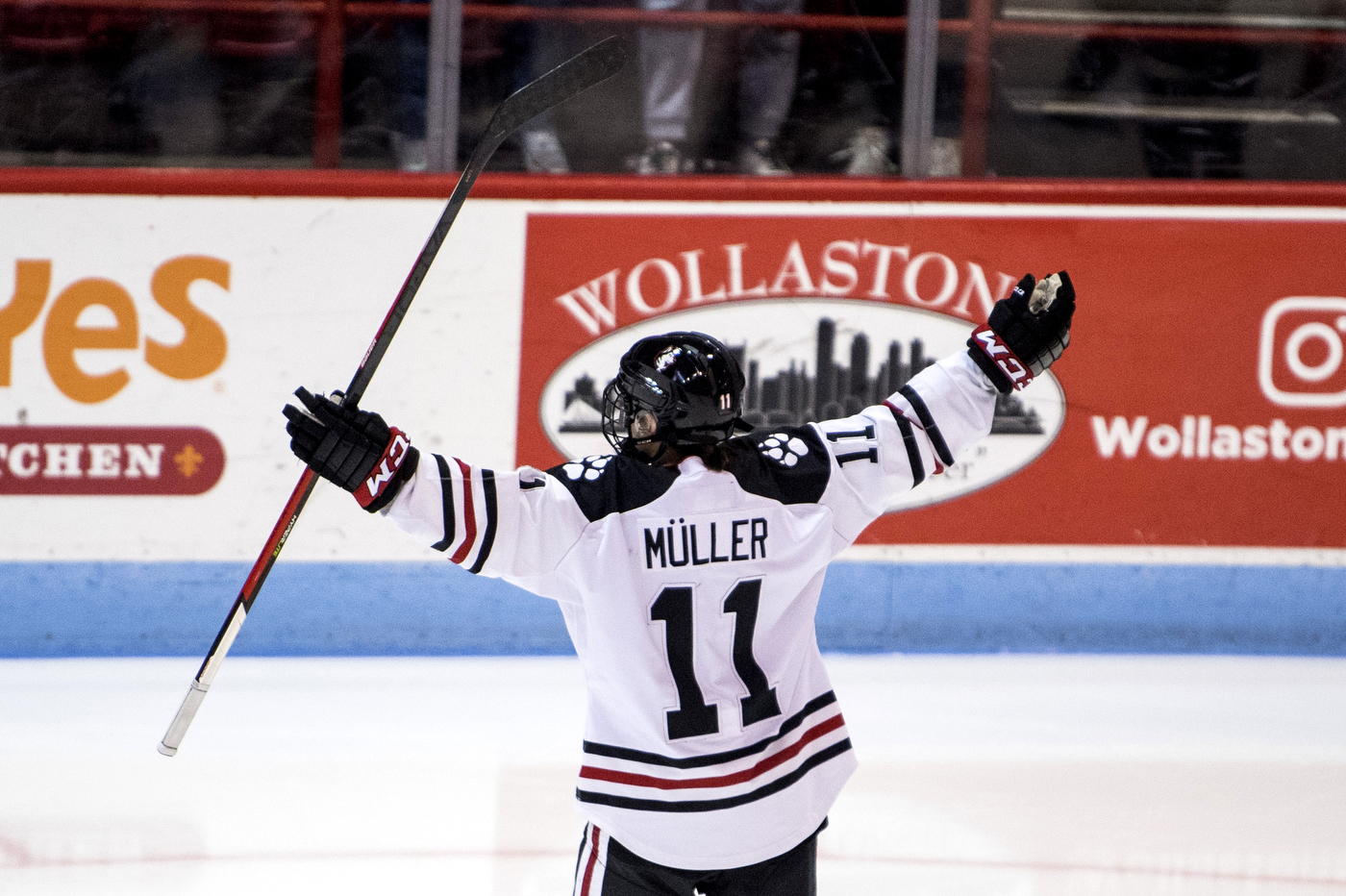
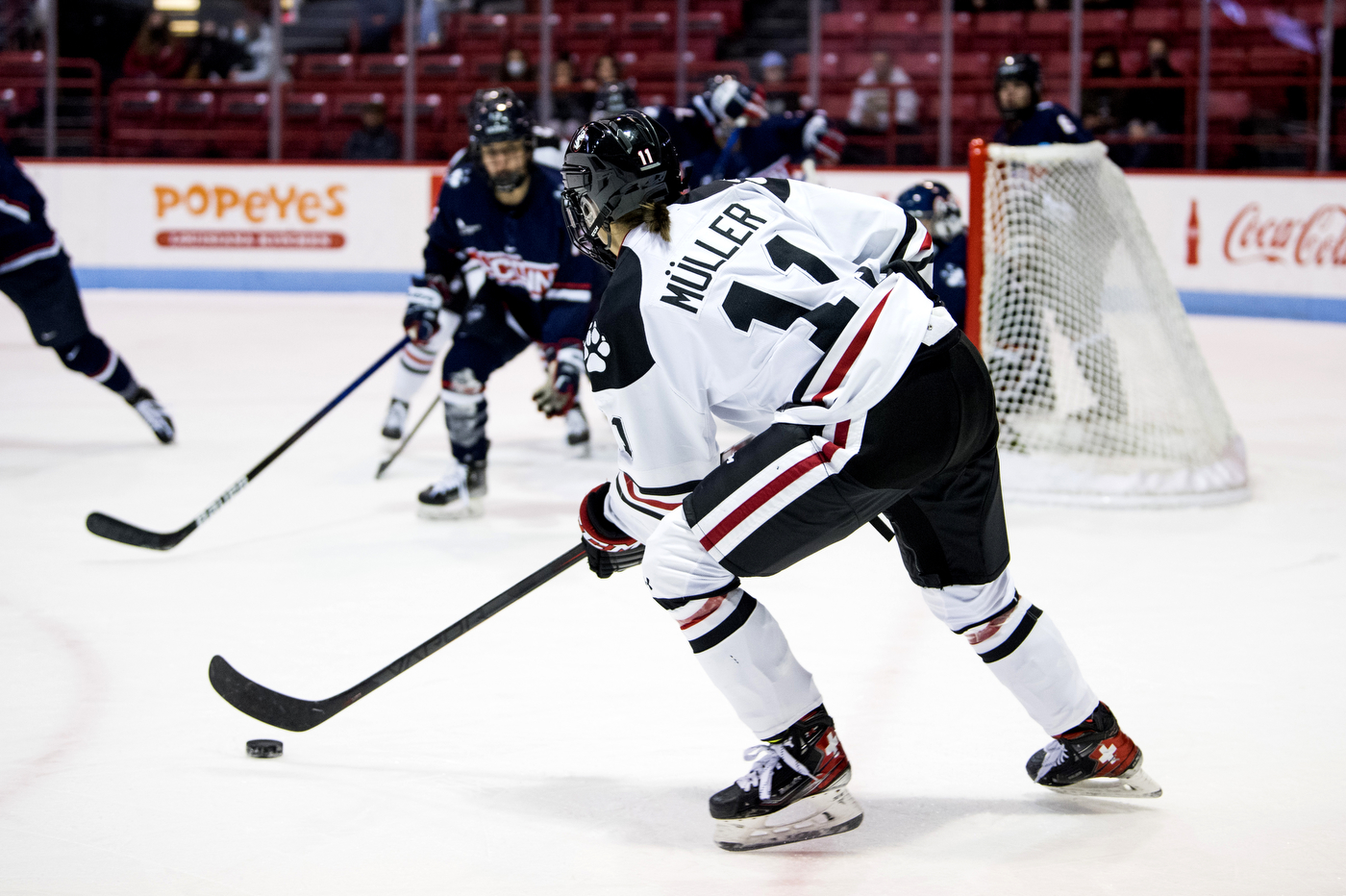
Much as she did for Northeastern in the Hockey East final, Mueller led Switzerland to its biggest victory in Beijing—a thrilling 4-2 quarterfinal win over the Russian Olympic Committee in which she set up the opening goal and then scored the winner. Fewer than three minutes remained when she pushed the puck up the length of the ice against four defenders before scoring on a give-and-go exchange with teammate Lara Stalder.
“That was almost unconscious movement,” says Mueller, who was falling with a defender on her back as she scored. “If you don’t have time to think, usually you do the right thing. I was so happy, exhausted, I didn’t even want to get up.”
Swiss reporters asked Mueller about her knack for thriving in the biggest moments. At age 15, she scored the winning goal in the bronze-medal game of the 2014 Olympics that made her the youngest player ever to medal in women’s hockey. Four years later, she earned the “Best Forward” award of the Olympics with a tournament-leading 10 points in six games.
“One major point is the preparation,” Mueller says. “You need to act as if you’re at the Olympics during the year, so you will be ready for when you’re actually there and you’re not surprised by what’s going on. I just try to be the best I can every day here [at Northeastern] as well, so then it feels like a normal game and I can just be myself and concentrate on hockey.”
The strange, bubbled environment of the Olympics prevented Mueller from exploring Beijing. She had an individual room within the four-person apartment she shared with three of her teammates at the Olympic village. The absence of fans—banned from attending hockey games because of the COVID-19 pandemic—has her looking forward to the energy of the home crowd at Matthews on Saturday.
“I was so happy to come back here and be with the team,” Mueller says. “A lot of other [Olympic] players are done with their seasons now. I really want to win with the Huskies.”
For media inquiries, please contact media@northeastern.edu.






